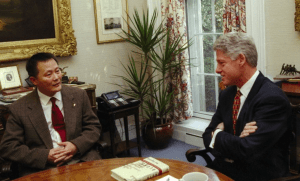Journal of Political Risk, Vol. 10, No. 1, January 2022

Helen Toner, Director of Strategy at the Center for Security and Emerging Technology (CSET) at Georgetown University.
Anders Corr, Ph.D.
Publisher of the Journal of Political Risk
The JPR interview with Helen Toner, the Director of Strategy at the Center for Security and Emerging Technology (CSET) at Georgetown University, was conducted via email between 4 January 2022 and 13 January 2022.
Corr: What are the national security risks and benefits of AI?
Toner: This is a huge question! AI is a general-purpose technology, meaning that—like electricity or the computer—its impacts will be felt across practically all industries and areas of society. Accordingly, it presents a huge range of potential risks and benefits from a national security perspective. One way of trying to summarize the possibilities might be as follows: the benefits will largely be in line with the kinds of benefits we have seen from increasingly sophisticated computing technology more generally: greater efficiency and accuracy, as well as the ability to perform tasks at scales impossible for humans (think: how Google search trawls the web). In terms of risks, one breakdown proposed by Zwetsloot and Dafoe is to think in terms of risks from accidents (i.e. unintended outcomes from using AI), misuse (i.e. the deliberate use of AI to cause harm), and structural changes (i.e. how progress in AI shapes surrounding systems and dynamics). I realize this is fairly abstract, but it’s impossible to enumerate specific risks without narrowing the scope to particular application areas, time frames, and actors.




